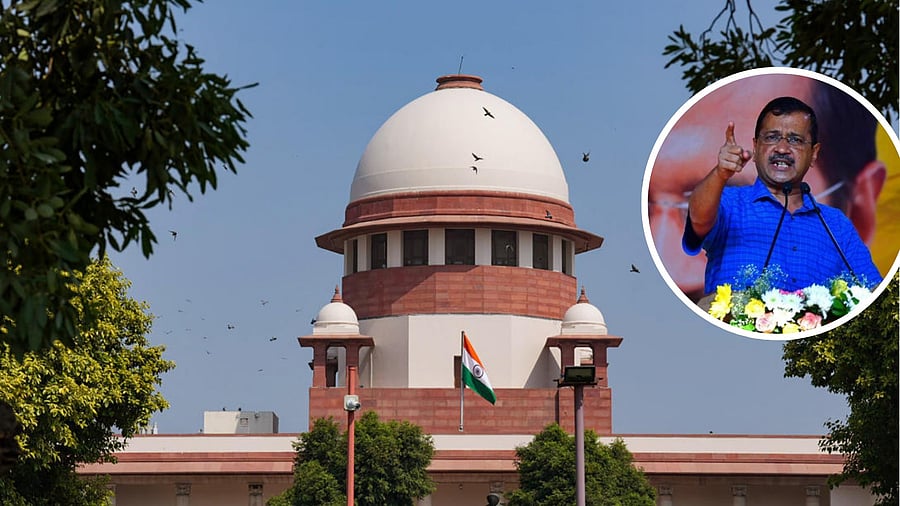
Supreme Court of India can be seen in this collage along with Delhi CM Arvind Kejriwal.
Credit: iStock and PTI Photos
New Delhi: Delhi Chief Minister, Arvind Kejriwal on Wednesday approached the Supreme Court against the dismissal of his plea against arrest and remand in the liquor policy scam case.
His plea is likely to be mentioned before a bench led by Chief Justice of India D Y Chandrachud for an early hearing.
The Delhi High Court had on April 9 rejected Kejriwal's plea challenging his arrest by the Enforcement Directorate noting that "the arrest was legal".
"The arrest of Arvind Kejriwal was not in contravention of the legal provisions. The remand can't be held to be illegal," Justice Swarana Kanta Sharma said.
Kejriwal was arrested on March 21 in the case after his failure to appear before the ED in response to nine summons. He is currently under the judicial custody.
"The material collected by the ED reveals that Kejriwal conspired and was involved in formulation of excise policy and used proceeds of crime. He is also allegedly involved in personal capacity in formulation of policy and demanding kickbacks and secondly in the capacity of national convenor of AAP," the HC had said.
The High Court had also rejected the contention by Kejriwal that the approvers' statements against him can't be relied upon, saying merely because approver chose to reveal some facts at a later stage, the statements can't be disregarded.
It also pointed out the law on approvers was over 100 years old and recording of their statements is not in the domain of the investigating agency.
